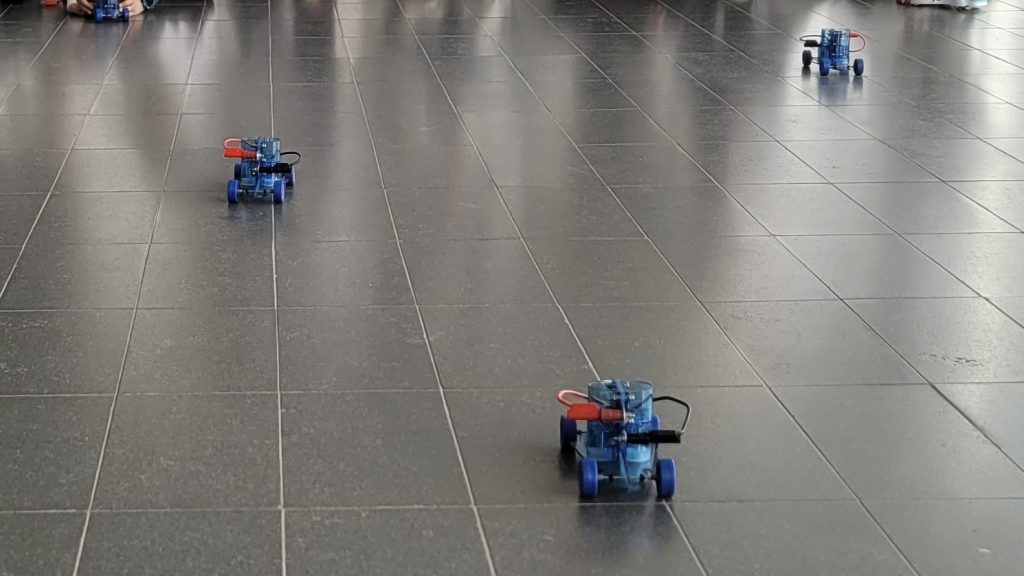The Pilot STE(A)M Learning Ecology in Germany designed collaborative, disciplinary, and practical activities promoting a holistic understanding of sustainable energy!
During the chemistry holiday course at the Humboldt-Universität zu Berlin, 12 to 16-year-old students had an interesting insight into climate change issues and renewable energy solutions, and designed small renewable energy systems and models of fuel cell-powered cars.

With these activities, pupils had the chance to increase problem-solving and critical thinking, and acquired the ability to evaluate complex energy-related issues and propose innovative solutions.
To learn more about this learning ecology, read the interview we conducted with Mr Helmbrecht, student assistant at the Humboldt-Universität zu Berlin!
Can you “paint a picture” of the context in which your STE(A)M Learning Ecology operates? Describe a bit the local setting where the SLE is located as well as the real life challenge it addresses. How does it link to the school curriculum?
The so-called holiday camp of the Department of Education in Chemistry offers students the opportunity to visit the university during their holidays. It particularly focuses on pupils who have a genuine interest in chemistry and/or want to enhance their practical skills in conducting experiments. The camp is located on the chemistry education department floor of Humboldt University in Berlin Adlershof. Students attending this one-week holiday camp engage with many socially relevant topics, often including at least one intriguing aspect that can be explored with the help of chemistry. This program connects with the school curriculum for various reasons, such as promoting practical skills, creative thinking, and problem-solving, all key competencies of the 21st century.
Could you briefly present your organization? What roles did your organization have in the SLE?
Stakeholders involved are Dr. Joachim Kranz and myself (Maximilian Helmbrecht). Joachim organizes the course, including buying materials and planning lessons for the one-week program. My role includes providing additional support, carrying out some parts of the course’s moderation, and offering technical assistance as we use multi-touch e-learning books on tablets. Since last year, I have been co-teaching with Joachim, whom I did not know before. We have not yet reached out to new stakeholders.
Have you already worked in similar open schooling projects in the past? If not, how was this first experience?
No, I did not. My first experience, however, was quite astonishing because I was genuinely surprised by the eagerness and honest interest of all the kids I have encountered in this context so far.
Why do you think that your STE(A)M Learning Ecology was so helpful? What are the benefits and the added value brought to the scholastic community? What are the benefits and added value brought to the educational experience of students/teachers involved? Please think about the skills developed.
I consider our STEAM Learning Ecology beneficial because as a teacher, you often face the challenge of adapting complexity levels to your students rather than expecting them to adjust to the content, which can result in omitting certain materials and tools that are perceived as difficult to use, such as experiments involving complex equipment like burettes. The holiday camp helped me realise that 10-year-olds are capable of using a burette correctly, with appropriate instructions, of course. This experience showed me that we should not underestimate our students’ abilities. Additionally, students absorb and connect new knowledge with their existing understanding. Most importantly, the children discover that chemistry can be enjoyable and is everywhere in our daily lives.
How do you think that your STE(A)M Learning Ecology engaged and attracted learners to opportunities in science-related fields, in particular young females?
During my internship, while observing a school class, I noticed that the active participation of young females seemed to depend on the presence of boys in their class or on whether the other girls shared a genuine interest in science. In my opinion, the holiday camp offers an attractive alternative for those who may feel alienated simply because they understand science and love delving deeply into it. This can foster a passion for pursuing careers in science-related fields.
Looking ahead, do you plan to further collaborate with the school and the other stakeholders involved? Do you envisage to further sustain this SLE in the near/ long future?
The continuation of this STEAM Learning Ecology (SLE) is planned for the near future.

